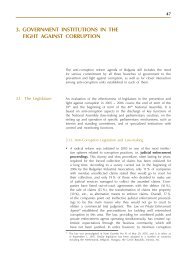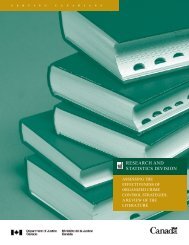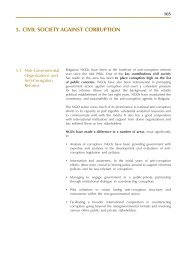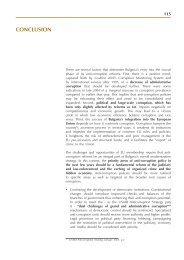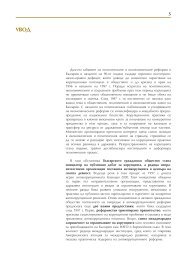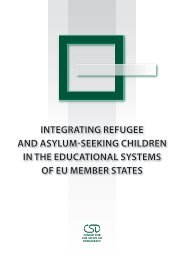National Threat Assessment 2008. Organised Crime - Politie
National Threat Assessment 2008. Organised Crime - Politie
National Threat Assessment 2008. Organised Crime - Politie
Create successful ePaper yourself
Turn your PDF publications into a flip-book with our unique Google optimized e-Paper software.
Intensification of criminal investigations into money laundering<br />
As a result of the increased focus on international cash flows in the fight against<br />
terrorism, financial institutions have focused their attention on getting to know<br />
their customers. The effect of this ‘customer due diligence’ is that banks assess<br />
high-risk relationships and portfolios more critically and, where required, sell<br />
them off. In addition, there is also a greater focus on the fight against financial<br />
crime, partly because of the murder of several property developers in the<br />
Amsterdam region. The fight against the problems in the Amsterdam red-light<br />
district also makes the criminal investment climate more uncertain. The increased<br />
focus on investigations into unlawfully obtained assets in the form of property<br />
has also reduced the relative anonymity that is a characteristic of the property<br />
market in the Netherlands. All of these developments have a deterrent effect<br />
on criminals who might otherwise invest in property.<br />
Expectations<br />
Based on the crime-related factors, a number of developments are expected. First of<br />
all, economic globalisation makes it relatively easy to invest in property abroad. There<br />
are also a number of Dutch measures in place, such as the Public Administration<br />
(Probity Screening) Act, which make domestic investment in and running of<br />
property more difficult for criminals who are known to the Dutch police. As a result,<br />
criminals who are active in the Netherlands are expected to start investing more<br />
abroad. Despite these developments, the Netherlands will remain attractive for<br />
criminals wanting to invest in property. Apart from the lack of effective supervision,<br />
investments in property that are intended to expand criminal activities are made<br />
wherever the organisation is active. This is why it remains possible that foreign<br />
criminals will be investing more in Dutch property. The Dutch property market is<br />
easily accessible and they are not known to the Dutch investigating authorities.<br />
There is currently no real reason to expect that the obstacles faced by the<br />
investigating authorities will be eliminated within a few years. Expertise must<br />
be built up and the number of agencies involved in enforcement and supervision<br />
will not change, as a result of which the exchange of information and effective<br />
collaboration will not be easy. Effective implementation of the ‘Tackling<br />
<strong>Organised</strong> <strong>Crime</strong>’ and ‘Financial and Economic <strong>Crime</strong>’ improvement<br />
programmes may have a positive effect.<br />
International legislation has made it increasingly difficult for criminals to exploit<br />
property in their own name. It therefore seems plausible that they will be using<br />
complex constructions with (foreign) legal entities more and more often,<br />
including the possibilities offered by all of the various laws and regulations.<br />
Financial service providers are crucial as regards these constructions.<br />
Financial service providers will therefore remain necessary for money laundering<br />
and investing in property.<br />
chapter 3 – Fraud and money laundering<br />
139



